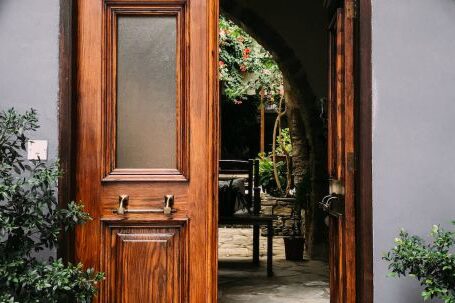During 2024, Dubai’s residential property market is consistently expanding and setting records. Approximately 170 thousand transactions are anticipated by the year’s end. The proportion of foreign investors among all buyers remains predictably high.
Among the top purchasers are citizens of the Russian Federation, who consistently rank in the top 5 of foreign investors. Russians benefit from the absence of geopolitical restrictions in the UAE market and actively invest in residential property.
Results And Trends At The End Of 2024
Dubai’s property market keeps displaying steady growth, demonstrated by the remarkable performance in recent months. A boost in buying activity from both local homeowners and foreign investors has resulted in a historic rise in residential property prices.
According to official data, by December, property values in Dubai had increased by 20% compared to the previous year.
Despite this growth, the total number of transactions for 2024 is projected to hit 170,000. This marks a 30 percent increase year on year.
In comparison to November 2023, the total number of residential property transactions for the month rose by nearly 11%. This month, 13,000 contracts amounting to $10.8 billion were recorded, up 1.6% from the previous year.
The off-plan sector was the most active, with over 8.5 thousand sales transactions in November 2024, showing a year-on-year rise of 46%.
Buyers purchased apartments more vigorously than villas: the ratio remains consistent with previous years – 80/20 on average.
An analysis of the preferences of buyers of homes with two or fewer bedrooms indicates:
- around 40% are interested in one-bedroom apartments;
- 42% are looking for two-bedroom homes;
- around 18% were interested in studios.
Among those searching for villas or townhouses, 37% are purchasing three-bedroom units, while 50% are acquiring units with four bedrooms or more.
Popular areas for purchasing homes continue to include:
- Palm Jumeirah;
- Business Bay;
- Downtown Dubai;
- Dubai Marina;
- Jumeirah Village Circle.
In the villa and townhouse market, MBR City, Palm Jumeirah, Al Furjan, Dubai Hills Estate, and communities in Dubailand are the most popular.
Although sales overall have risen, the villa and land segments are experiencing a decline. In November, 1,900 villas valued at $2.8 billion were sold, representing a 36 percent drop from November 2023. Sales of land plots fell by 40%, totaling 387 transactions worth $2.2 billion.
Thus, the Dubai property market continues to demonstrate a high level of activity, but there is a variation in growth dynamics depending on the segment.
Market Trends
Dubai’s property market is active, reacting to changing buyer demands and strategic moves by authorities. In this context, several trends have developed.
Sustainable Development And Prioritization Of Eco-Friendliness
Modern projects in Dubai are increasingly focused on sustainability principles. For instance, the Dubai Green Building Regulations program promotes the construction of energy-efficient buildings, lowering energy and water usage.
The use of eco-friendly materials, renewable energy sources (solar, geothermal), and extensive green spaces is becoming standard. This trend is driven by a worldwide rise in environmental awareness and a push to reduce carbon footprints.
In 2024, Dubai ranks third in the global list of cities with over 400 projects holding a LEED license or green building certification.
Smart Homes And Technology Integration
Dubai is working on becoming a “smart city”. The Smart Dubai plan aims for significant digital changes in the city, which supports the growth of the smart home market.
New housing developments are being fitted with systems that manage lighting, security, and energy use. This enhances living comfort and resource efficiency, drawing in buyers who value tech advancements.
The average number of such projects is increasing by 12% annually.
The Popularity Of Functional Common Areas And Coworking Spaces
The rise of remote work has created a higher demand for flexible living arrangements, including coworking spaces and areas for cooperation and leisure.
This is ideal for freelancers, digital nomads, and young professionals. Nearly one in three high-end complexes offers coworking spaces and shared work areas for residents.
The Constant Demand For Luxury
Despite new trends, Dubai continues to be a hub for luxury real estate. Properties with special features like private beaches and spa facilities remain very desirable for wealthy buyers.
Luxury villas and homes priced over $2.7 million, such as those at District One West 2 and The Acres Villas, are selling so quickly that their share of transactions has risen by 2-4 percent in recent months.
Rentals
The Dubai Land Department reports that over 560,000 residential rental transactions were logged by mid-December. This number is similar to 2023, when about 540,000 transactions occurred.
Of those renting apartments, 65% preferred furnished options, while for villas and townhouses, 52% sought unfurnished choices, and just 48% wanted furnished ones.
The breakdown of agreements shows that 41% are new tenants and 59% are renewals, suggesting some stability in the market.
The geographical spread of tenants indicates clear demand segments.
The top locations of apartments in Dubai are:
- Dubai Marina;
- Business Bay;
- Downtown Dubai;
- Deira;
- Jumeirah Lake Towers.
For villas and townhouses, tenants prefer:
- Arabian Ranches;
- Al Barsha;
- Damac Hills;
- Dubai Hills Estate.
For instance, the average annual rental values during 2024 were:
- two-bedroom apartments – $30k;
- townhouses – over $40,000;
- villas – $46,000.
The Dubai Land Department observed that in the first half of 2024, rental prices for luxury apartments rose by 7% and for luxury villas by 27%. We can anticipate these figures will continue to increase for the entire year as well.
Forecast For 2025
Experts anticipate continued growth in the need for renting and purchasing property in Dubai in 2025. The appeal of the Dubai housing market is supported by several factors, including a favorable tax system, modern technological infrastructure, and visa and residency programs accessible to citizens of all nations.
Key Outlook
Dubai’s property market has experienced steady growth in both prices and demand. The post-pandemic surge has caused a remarkable rise in transactions, shown by a consistent increase in rents and property values across most areas.
The year 2024 has recorded a significant increase in villa values, especially in Palm Jumeirah and Jumeirah Islands, where prices have nearly doubled since 2014.
However, price growth is anticipated to slow to 5-8% in 2025 in the luxury property market because of potential global economic risks.
Luxury villas are expected to experience the strongest price growth in 2025, with beachfront residences and penthouses projected to increase by an additional 8-10%. The greatest growth will occur in high-end neighborhoods like Palm Jumeirah, Dubai Hills Estate, and Jumeirah Golf Estate.
Further growth in the completion of finished projects is expected. This is due to the completion of pre-sold properties from 2022-2023.
The next two years are set to introduce around 182,000 new properties into service, which is much higher than the average of past years. From 2019 to 2023, an average of 40 thousand lots were introduced annually.
An additional increase in supply is anticipated until 2029 – developers plan to construct 300 thousand new properties. Of this, 80 percent will be apartments and 17.5 percent will be villas.
Forecasts indicate that with continued economic growth and increasing tourist numbers, the rental market in Dubai will remain stable and attractive for investment.



